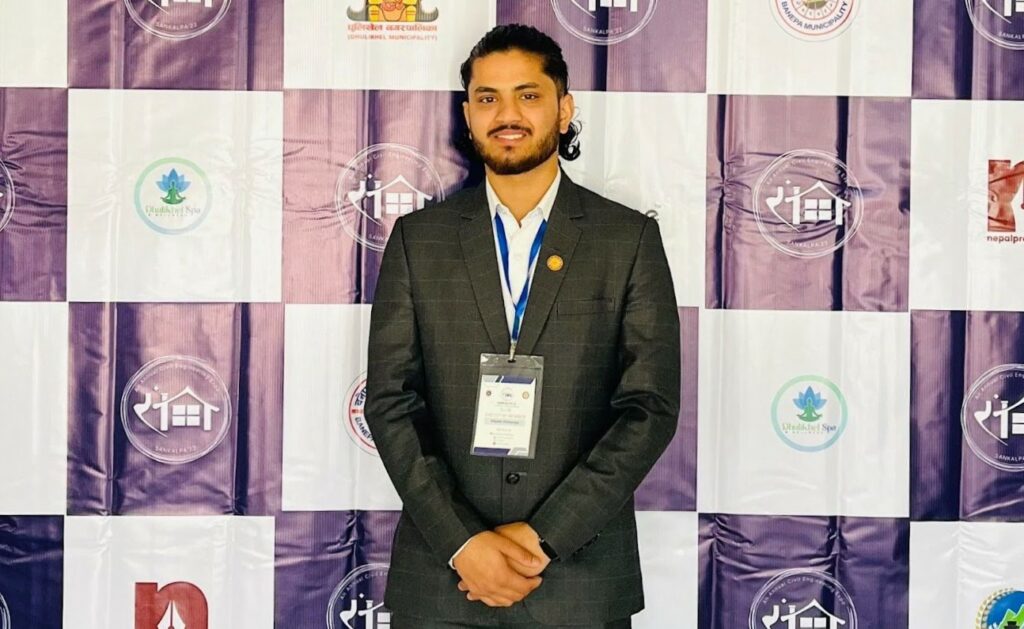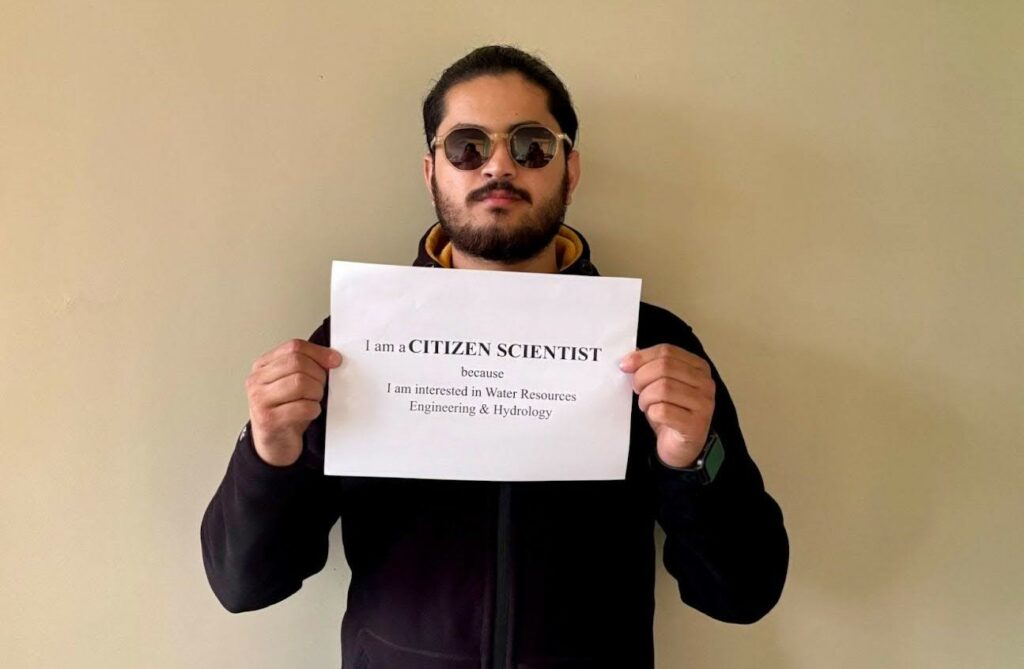Bridging Engineering and Citizen Science: Dikshit Chimoriya’s Journey as a Citizen Scientist
Each type of knowledge has value; however, from an engineering point of view, practical knowledge seems to be more valuable than theoretical knowledge. -Eraldo Banovac
Dikshit Chimoriya, a 22-year-old final-year Civil Engineering student from Pepsicola, Bhaktapur, understands this well. Recognizing the importance of hands-on experience, he actively participated in the Monsoon Expedition, a citizen science-based rainfall monitoring campaign led by Smartphones For Water Nepal (S4W-Nepal). Reflecting on his journey as a citizen scientist, he shares how participating in this initiative has enhanced his learning and growth as an aspiring engineer.

“My academic journey has been filled with a variety of subjects that have not only challenged me but also sparked my interest in understanding the intricate relationship between engineering and environmental studies.”
Dikshit learned about S4W-Nepal from his college seniors and through social media. They made him realize the importance of citizen science in addressing environmental challenges and inspired him to become a citizen scientist.
“The motivation to become a citizen scientist stemmed from my desire to contribute to meaningful research while gaining hands-on experience that complements my academic studies.”
As a citizen scientist, he monitors rainfall using a cost-effective S4W soda bottle rain gauge. This hands-on experience has deepened his understanding of local climate dynamics and weather patterns., while also enhancing his appreciation for the complexities of the environment. He describes his role as both rewarding and educational, allowing him to apply theoretical knowledge to real-world scenarios, making learning more engaging and dynamic. Despite facing technical challenges during data collection, he embraces each obstacle as an opportunity to learn and improve.

“I have developed stronger problem-solving skills and a keen attention to detail, which are essential traits in both scientific research and engineering.”
As a civil engineering student, he explores subjects like hydrology, geology, and GIS mapping key themes aligned with the work of S4W-Nepal. His role as a citizen scientist has also provided him with valuable skills like environmental monitoring, which will prepare him for his future as a professional.

“Monitoring hydrometeorological parameters not only reinforces my classroom learning but also enhances my understanding of how engineering principles can be applied to address environmental issues.”
Dikshit believes that the citizen science approach plays a vital role in driving positive change within communities, as it raises awareness about pressing environmental issues. He sees it as a valuable tool for addressing critical challenges such as water resource management and climate change adaptation. Looking forward, he aspires to build a career that integrates his engineering expertise with his citizen science experience, focusing on initiatives that advance sustainable infrastructure development and enhance environmental resilience.
Dikshit is eager to inspire his fellow citizen scientists and students to engage in similar initiatives actively. While he greatly appreciates the work of S4W-Nepal, he suggests organizing more technical training sessions and gatherings. Such events, he believes, would provide a valuable platform for networking, experience sharing, and the exchange of innovative ideas. We thank Dikshit for his thoughtful suggestions and commend his dedication. We look forward to seeing him continue his journey toward making meaningful contributions to society and the environment.
